teeth whitening Canning Vale
Professional Teeth Whitening Options in Canning Vale
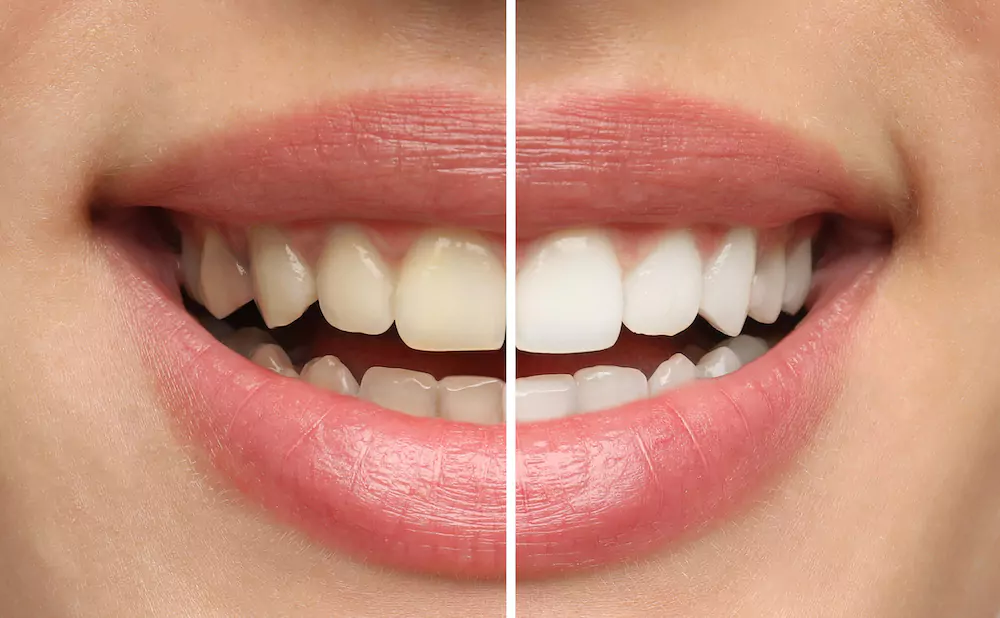
Professional Teeth Whitening Options in Canning Vale
Teeth whitening can lighten the shade of your teeth and reduce surface staining. We offer both in-chair and at-home professional whitening treatments, which may be suitable for patients with certain types of discolouration.
Our dentists will assess your teeth and gums to determine whether whitening is appropriate for you, explain the expected outcomes, and discuss any potential risks or sensitivity that may occur.
How Much Does Teeth Whitening Cost?
The cost of professional whitening depends on the method you choose and your individual goals:
In-chair whitening – $960
Performed in our clinic using professional-grade materials and equipment, this option delivers noticeably brighter results in just one visit. It’s ideal for those wanting fast, effective whitening under the supervision of our experienced team. Some patients may experience mild, temporary sensitivity afterwards.
Take-home whitening kit – $500
Provided by our clinic, this option includes custom-fitted trays and a professional-strength whitening gel. It allows you to achieve gradual whitening from the comfort of home and is often preferred by patients with sensitive teeth.
Both options are safe, professionally supervised, and designed to protect your enamel while enhancing your smile.
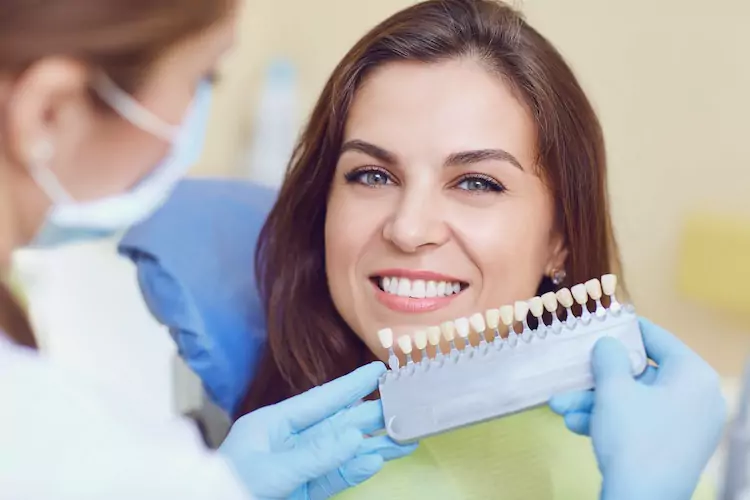
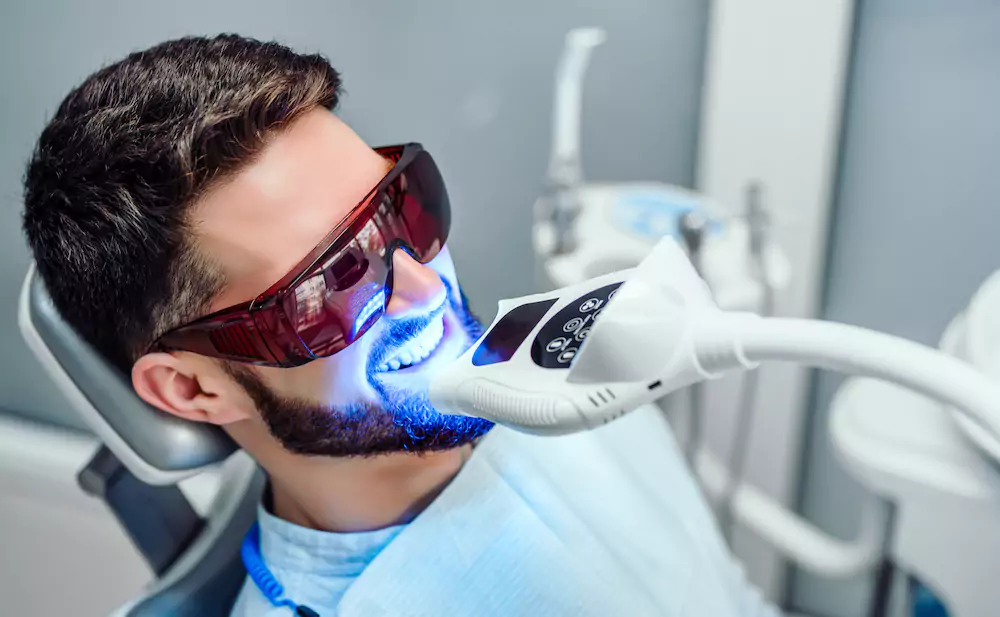
How Long Does Teeth Whitening Last?
The results from whitening are not permanent and can last from several weeks to up to two years. This depends on factors such as:
Dietary choices
Oral hygiene habits
Tobacco use
Regularity of professional maintenance treatments
Types of Teeth Whitening
There are various types of teeth whitening, including:
Whitening toothpaste – Can help reduce some surface stains, though results are typically less noticeable. Prolonged use of abrasive toothpaste can wear enamel, so it should be used with care and professional advice.
Over-the-counter products – Contain lower concentrations of whitening ingredients compared to professional treatments. Effectiveness varies, and professional guidance is recommended before use.
In-chair whitening – Performed by a dentist using higher concentration whitening agents and protective measures for the gums.
At-home professional whitening – Involves a custom tray and whitening gel provided by your dentist. This allows more controlled application and minimises contact with gums.
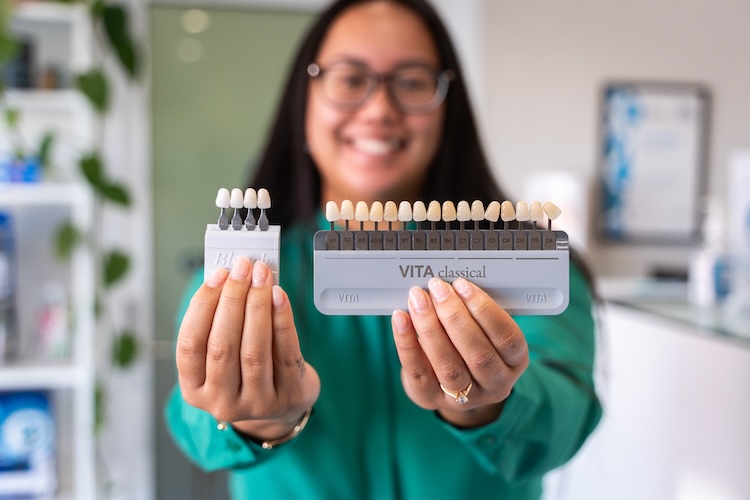
How to Make Your Teeth Whitening Last Longer
Attend regular dental check-ups and professional cleans to maintain your oral health and manage new stains.
Reduce contact with staining foods and drinks; using a straw for certain beverages may help minimise discolouration.
Rinse your mouth with water after consuming staining substances if brushing immediately isn’t possible.
Benefits of Professional Teeth Whitening
Professional whitening treatments are customised to your needs, with the strength of the whitening agent, application time, and any sensitivity management tailored to you. This approach can address different types of staining, including those from food, drinks, tobacco, or age.
We’ll ensure you understand the process, expected outcomes, and potential temporary side effects before you begin treatment.
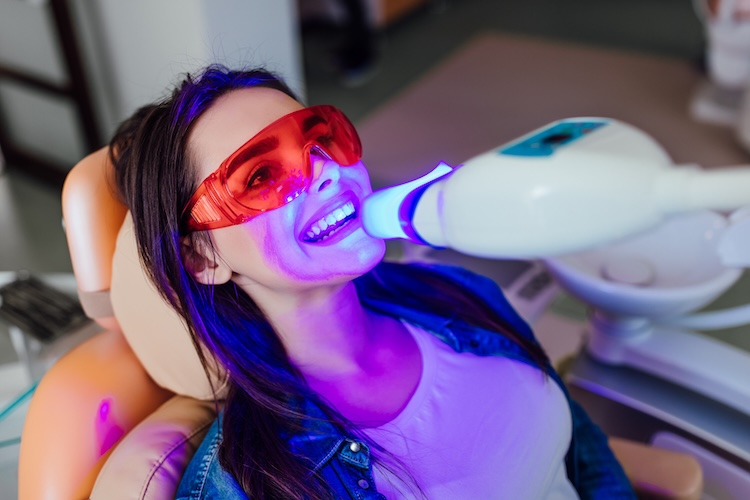
Associations
Our dentists are members of reputable dental associations, including the Australian Dental Association WA (ADAWA) and the Australian Health Practitioner Regulation Agency (AHPRA). We are also accredited by QIP, meaning our practice adheres to industry guidelines and regulations.
We accept all health funds, claimable on the spot for your convenience. We are preferred providers with HBF, HCF, CBHS and NIB, meaning you can maximise your rebate.
We also provide interest free payment plan options via The Tooth Market’s Fund My Dental. We also participate in government aided programs such as the Child Dental Benefits Scheme and provide top quality treatment for Department of Veterans’ Affairs (DVA) card holders.


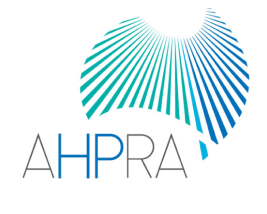






Meet Our Team
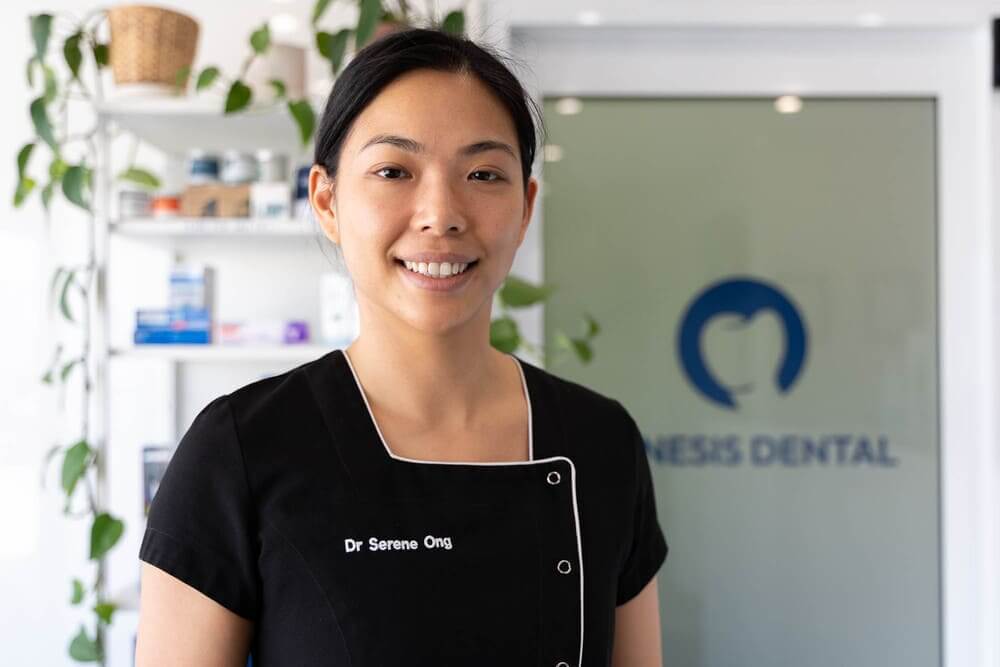
Dr. Serene Ong
Dentist

Dr. Ben Luu
Dentist
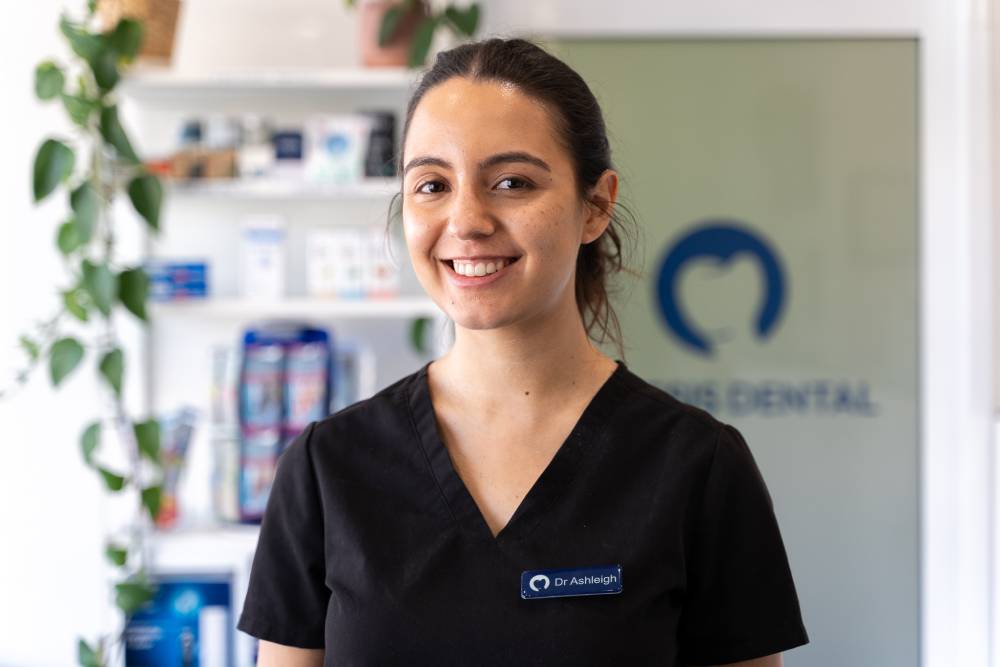
Dr. Ashleigh Furfaro
Dentist

Dr. Jun Liew
Dentist
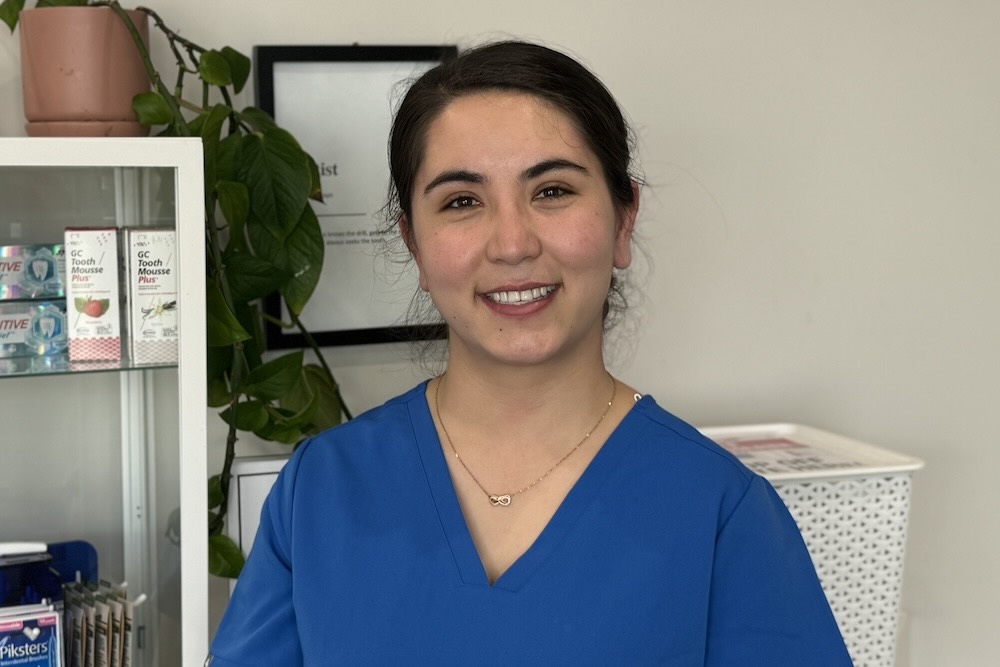
Fatima Akbari
Oral Health Therapist
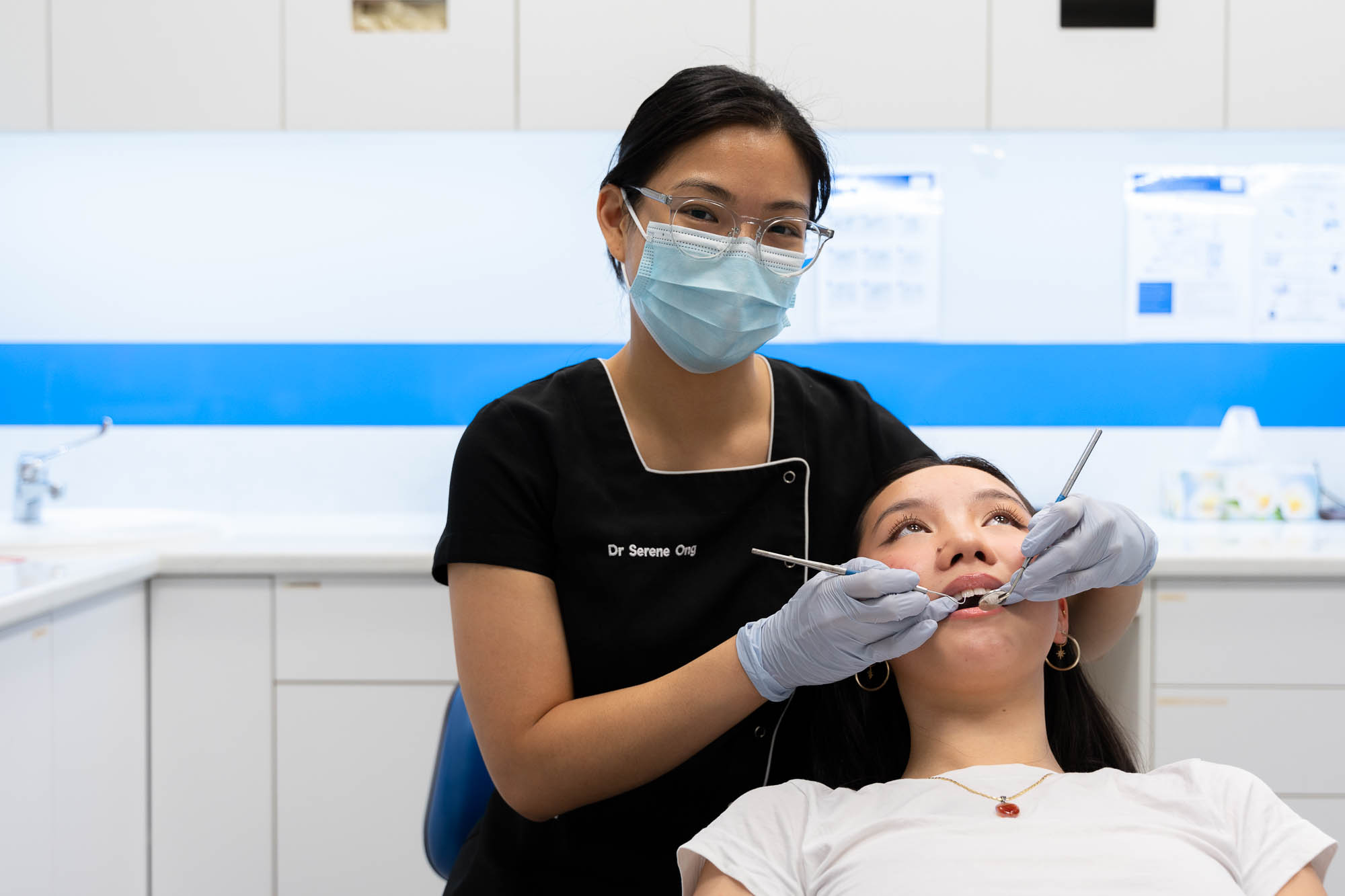
Why Choose Genesis?
Our team, including Dr Serene Ong, Dr Ben Luu, Dr Ashleigh Furfaro, Dr Jun Liew, and Oral Health Therapist Fatima Akbari, provides a patient-focused approach to whitening. We take the time to assess suitability, explain all options, and provide care that prioritises both safety and results.
Teeth Whitening FAQs
What is teeth whitening?
Teeth whitening is a dental treatment that aims to lighten the natural colour of your teeth and reduce staining. It works by applying a bleaching gel to the teeth, either during an in-chair appointment at the dental clinic or using a custom-made tray at home. Whitening can help improve the appearance of teeth affected by common stains from food, drinks, or tobacco, but results and suitability vary for each person. Your dentist will assess your teeth and gums, explain the process, and discuss possible risks such as temporary sensitivity.
Are there any stains professional teeth whitening can’t remove?
Certain types of discolouration do not respond to whitening, even with professional treatment. This includes inorganic stains and teeth darkened due to trauma or fluorosis. In these cases, your dentist can discuss alternative options such as veneers or bonding that may be more effective in improving appearance.
Are there any side effects of teeth whitening?
Some patients experience temporary tooth sensitivity after whitening. Overuse of whitening products can damage enamel and gum tissue. Whitening may also produce uneven results if the staining is irregular or linked to pre-existing conditions. Your dentist will recommend a treatment schedule to minimise risks and maintain results safely.
What can I eat after teeth whitening?
For the first 48 hours after whitening, it’s best to choose lighter-coloured foods and drinks to help maintain your results. Options include fish, chicken, tofu, rice, bread, pasta, white cheese, yoghurt, and most light-coloured fruits and vegetables. Avoid highly pigmented or acidic foods and drinks, such as coffee, tea, red wine, dark sauces, and berries, as these can contribute to staining.
Contact Us
We invite you to contact our caring, experienced dentists in Canning Vale to learn more about your options for teeth whitening or set up a consultation.